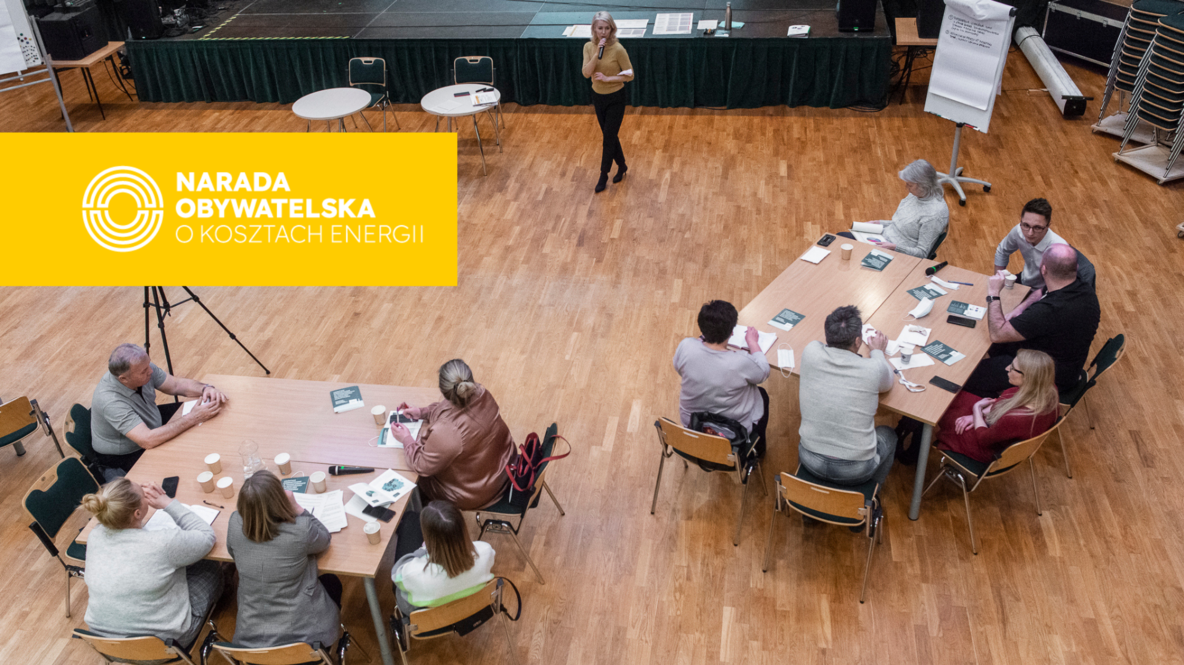Citizens show ways out of energy poverty

What to do when people are unable to heat their homes due to financial hardship? In Poland, a citizens' assembly has developed 130 proposals to combat so-called energy poverty. On 6 December 2022, the recommendations of the 100 assembly members were presented to the public.
Among the 15 most important recommendations is the proposal to modernise and expand the electricity grids as quickly as possible in order to enable a higher share of renewable energies in Poland. In addition, a long-term national energy strategy for the next 15 years is to be developed. With an energy transformation fund, at least 70 percent of the revenues from the carbon emissions trading system (EU ETS) are to be redirected to climate and environmental goals.
Moving away from fossil fuels
Assembly members also call for a consistent shift away from fossil fuels in Poland's energy mix. Transparent regulation is proposed for the energy market. The main issue is better control of companies in setting energy and commodity prices.
In the fight against energy poverty, the activities of public institutions should be coordinated at central and regional level. This could be made possible, for example, by a central institution for combating energy poverty.
Information and counselling services
Further recommendations refer to information and counselling offers regarding energy efficiency and a change in energy consumption habits. Citizens should receive easy-to-apply support from the state for the thermal refurbishment of buildings. In addition, the citizens' assembly is committed to local energy cooperatives that invest in renewable energy sources.
In order to help people affected by energy poverty, low-income households should be supported, for example, with subsidies or benefits so that they can cover or reduce their energy costs. The state should also facilitate the replacement of worn-out household appliances and the use of communal facilities such as laundry rooms. Furthermore, the state should launch housing programmes to create more low-energy housing.
Participants satisfied
A scientific advisory board is to support the parliament with its knowledge, for example by scientists participating in committee meetings dealing with energy issues.
"I am satisfied with the results," said an assembly participant at the closing event. "Apart from small differences, we have decided on solutions that are forward-looking. It's not about plugging a hole for a quick fix, but something that will give us more for the future."
Sessions in October and November
Poland's first national citizens' assembly met in October and November 2022. It consisted of 100 residents of the country who spent five days together discussing the high cost of energy and ways to eliminate energy poverty.
Energy poverty means that people are not able to heat their homes and use electrical appliances sufficiently. This directly affects up to ten percent of the Polish population, while the indirect consequences - poor air quality due to high consumption of coal, oil and gas or the burden on the health system - affect a much larger group of people in Poland.
Information by experts
During the assembly meetings, the participants were familiarised with the topic by experts from the fields of social policy, energy and climate, and then discuss possible solutions to the problem of high energy costs and energy poverty. At the end, there was a joint decision on recommendations for action to politicians.
The citizens' assembly was made up of people of different genders and educational backgrounds, of different ages, and from larger cities and small rural communities in Poland. For their participation, the assembly members received an expense allowance of 720 Złoty (151 euros).
Broad discussion from March to June
Prior to the citizens' assembly, the "Fundacji Stocznia" Foundation and the Centrum Nauki Kopernik, as organisers of the assembly, had already involved citizens from different regions of Poland, representatives of organisations and institutions as well as local and state authorities in a joint discussion from March to June 2022 in order to develop socially agreed and acceptable recommendations for action to combat energy poverty in Poland.
The aim was to take the discussion into households and into cities and municipalities. There were various ways to participate in the debate. At local meetings, participants could talk about their situation and together look for measures against the high energy costs.
Assemblies and individual discussions
The meetings could be organised by anyone interested. Leaders from social organisations, church congregations, housewives' associations, housing associations, settlement councils and community representatives were particularly encouraged to do so. More than 700 people were at one of the events. For those who did not want to or could not attend these meetings, there was the possibility to express their opinion in a survey on the problem of high energy costs.
Separately, there were also one-to-one meetings with people who might be affected by energy poverty. These could be carried out by their relatives, neighbours and by people who work in the social sector, for example.
Goal: Eradicate energy poverty
The results from all the consultations were summarised in a joint document that was used to prepare the nationwide citizens' assembly.
The aim of the citizens' assembly project is to remove existing barriers and create tools to implement a short- and long-term strategy to reduce and eventually eliminate energy poverty. The assembly will decide on its recommendations to address energy poverty on 16 November 2022.
Proposals for parliaments and authorities
The proposals developed in the citizens' assembly are now handed over to representatives of parliaments, national authorities, local governments, non-governmental organisations, think tanks and other groups for whom the issue of energy costs and growing energy poverty is or should be an important topic. On 16 February 2023, for example, the recommendations were presented to the Polish Parliament and the Senate Committees on Climate and Local Government.
Read more: Narada Obywatelska o Kosztach Energii